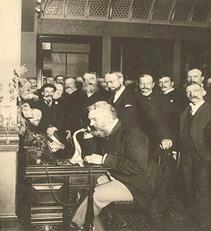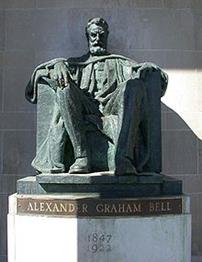
Читайте также:
|
1. Choose the right variant. The letter ______two days ago.
a) were sent
b) be send
c) have been sent
d) was sent
2. Choose the right variant. He ____ go out after 10 p.m.
a) isn’t allowed
b) isn’t allowed to
c) aren’t allowed to
d) isn’t allow to
3. Choose Present Continuous Passive
a) We are redecorated our kitchen at the moment.
b) We are redecorating our kitchen at the moment.
c) Our kitchen is being redecorated at the moment.
d) We were redecorating our kitchen at the moment.
4. Choose Present Simple Passive
a) English is spoken here.
b) English was spoken here.
c) English is spokening here.
d) English is being spoke here.
GLOSSARY
| English | Russian | Kazakh |
| inculcate | прививать | бейімдеу |
| contribution | вклад | үлес |
| to be gifted | быть одаренным | дарынды болу |
| immortalize | увековечить | мәңгі есте қалдыру |
| copper deposits | медные месторождения | мыс кен орындары |
| ascribe | приписывать, относить | есептелу |
| inspire | вдохновлять | дем беру, жігерлендіру |
| offer | предлагать | ұсыну |
Home assignment
p. 57, ex. 1 a,b [2]
SIW
Read the text. Invention of the telephone

Alexander Graham Bell (March 3, 1847 – August 2, 1922) was an eminent scientist, inventor, engineer and innovator who is credited with inventing the first practical telephone.
His research on hearing and speech further led him to experiment with hearing devices which eventually culminated in Bell being awarded the first US patent for the telephone in 1876. In retrospect, Bell considered his most famous invention an intrusion on his real work as a scientist and refused to have a telephone in his study.
 Alexander Bell was born in Edinburgh, Scotland on March 3, 1847. As a child, young Alexander displayed a natural curiosity about his world, resulting in gathering botanical specimens as well as experimenting even at an early age. From his early years, Bell showed a sensitive nature and a talent for art, poetry and music that was encouraged by his mother. As a young child, Bell, like his brothers, received his early schooling at home from his father. At an early age, however, he was enrolled at the Royal High School, Edinburgh, Scotland, which he left at age 15. In 1868, not long before he departed for Canada with his family, Aleck completed his matriculation exams and was accepted for admission to the University of London.
Alexander Bell was born in Edinburgh, Scotland on March 3, 1847. As a child, young Alexander displayed a natural curiosity about his world, resulting in gathering botanical specimens as well as experimenting even at an early age. From his early years, Bell showed a sensitive nature and a talent for art, poetry and music that was encouraged by his mother. As a young child, Bell, like his brothers, received his early schooling at home from his father. At an early age, however, he was enrolled at the Royal High School, Edinburgh, Scotland, which he left at age 15. In 1868, not long before he departed for Canada with his family, Aleck completed his matriculation exams and was accepted for admission to the University of London.
Bell's father encouraged Aleck's interest in speech and, in 1863, took his sons to see a unique automaton, developed by Sir Charles Wheatstone based on the earlier work of Baron Wolfgang von Kempelen. The rudimentary "mechanical man" simulated a human voice. Aleck was fascinated by the machine and after he obtained a copy of von Kempelen's book, he and his older brother Melville built their own automaton head. Their efforts resulted in a remarkably lifelike head that could "speak", albeit only a few words.
 In March 1875, Bell visited the famous scientist Joseph Henry, and asked his advice on the electrical multi-reed apparatus that Bell hoped would transmit the human voice by telegraph. Henry replied that Bell had "the germ of a great invention". When Bell said that he did not have the necessary knowledge, Henry replied, "Get it!" That declaration greatly encouraged Bell to keep trying, even though he did not have the equipment needed to continue his experiments, nor the ability to create a working model of his ideas. However, a chance meeting in 1874 between Bell and Thomas A. Watson (assistant to A.Bell), an experienced electrical designer and mechanic at the electrical machine shop of Charles Williams, changed all that.
In March 1875, Bell visited the famous scientist Joseph Henry, and asked his advice on the electrical multi-reed apparatus that Bell hoped would transmit the human voice by telegraph. Henry replied that Bell had "the germ of a great invention". When Bell said that he did not have the necessary knowledge, Henry replied, "Get it!" That declaration greatly encouraged Bell to keep trying, even though he did not have the equipment needed to continue his experiments, nor the ability to create a working model of his ideas. However, a chance meeting in 1874 between Bell and Thomas A. Watson (assistant to A.Bell), an experienced electrical designer and mechanic at the electrical machine shop of Charles Williams, changed all that.
On June 2, 1875, Watson accidentally plucked one of the reeds and Bell, at the receiving end of the wire, heard the overtones of the reed; overtones that would be necessary for transmitting speech. That demonstrated to Bell that only one reed or armature was necessary, not multiple reeds. This led to the "gallows" sound-powered telephone, which was able to transmit indistinct, voice-like sounds, but not clear speech.
Many other inventions marked Bell's later life, including groundbreaking work in optical telecommunications, hydrofoils and aeronautics. In 1888, Bell became one of the founding members of the National Geographic Society. He has been described as one of the most influential figures in human history.
| Bell at the opening of the long-distance line from New York to Chicago in 1892. | Bell statue by A.E. Cleeve Horne, similar in style to the Lincoln Memorial, in the front portico of the Bell Telephone |
Дата добавления: 2015-08-20; просмотров: 88 | Нарушение авторских прав
| <== предыдущая страница | | | следующая страница ==> |
| Writing | | | Reading |